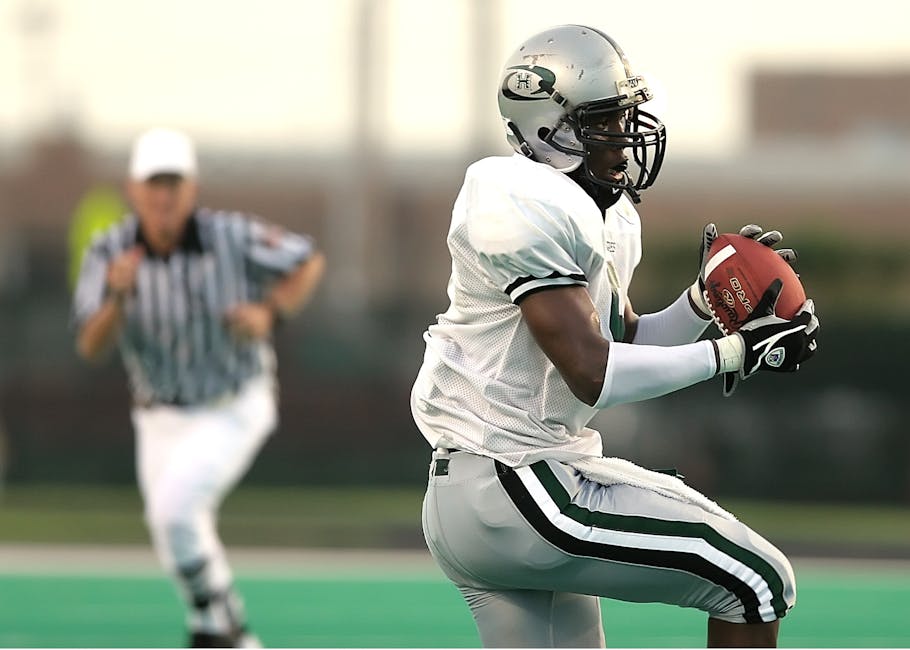Passover poems echo the essence of the Exodus narrative, capturing the profound liberation and unwavering faith of the Israelites. Each verse and stanza resonates with the dramatic escape from slavery, reminding us of the fragility of freedom and the unwavering hand of destiny. The parallels between the ancient exodus and our contemporary struggles illuminate the timeless yearning for freedom and the strength found in collective resilience.
38 – Timeless Passover Poems that Echoes Exodus
The Exodus Begins
In ancient lands of Egypt’s might,
A people cried, a people fought,
Their freedom sought, their voices loud.
With Moses’ staff and heart aflame,
He led the charge, their leader great,
Through desert sands and burning flame.
Their journey long, their journey hard,
But still they walked, their spirits scarred,
Toward the Promised Land, their heart’s yard.
Whispers of the Past
In dark of night, in secret place,
The Israelites gathered, face to face,
Their hearts aflame with hope and fear,
Their whispers breathed, their freedom near.
Freedom’s Call
From bondage chains, from slavery’s grasp,
The Israelites were called at last,
To leave behind the life they knew,
And follow Moses, an unknown route anew.
With every step, with every pace,
They walked toward freedom’s sacred space,
And left behind the Pharaoh’s might,
To claim their rights, to shine their light.
The Parting Sea
The waves crashed strong, the winds did howl,
The sea parted wide, its depths did unfold,
A path of escape, a path of might,
For Israel’s sons, in the dark of night.
Their footsteps echoed, loud and clear,
As they crossed over, year by year,
To safety’s shore, to freedom’s ground,
Where their redemption was finally found.
Ambassadors of Hope
In every land, in every time,
There rises up a cry, a rhyme,
Of freedom’s call, of hope’s sweet name,
A legacy that still proclaims the same.
The Israelites, a people bold,
Their story told, their hearts of gold,
Ambassadors of hope, they stand,
A beacon bright, in this promised land.
Tablets of Stone
On Mount Sinai’s peak, so high and wide,
The Ten Commandments, God did provide,
In tablets of stone, they were inscribed,
A moral code, a heart’s devised.
A binding law, a sacred trust,
A people’s guide, a heart’s rust,
Through ages past, through ages old,
These tablets of stone, forever to be told.
The Seder’s Song
Around the table, we gather round,
To share the story, to retell the sound,
Of freedom’s call, of hope’s sweet refrain,
In every word, in every vein.
The Seder’s song, it echoes near,
A tradition old, a heritage dear,
A people’s pride, a people’s voice,
In every note, in every choice.
Burning Bush
In desert lands, where bushes grow,
A flame arose, a heart did glow,
A call to duty, a call to lead,
Moses’ heart, with courage did proceed.
The burning bush, it spoke his name,
A prophet’s call, a hero’s claim,
To lead the people, to lead the way,
Through the wilderness, to a brighter day.
Midnight Miracles
The night was dark, the hour was late,
The Israelites, in anxious wait,
For freedom’s call, for deliverance dear,
Their hearts aflame, their hopes did appear.
The angel’s cry, the death’s dark sting,
Passed over homes, where blood did cling,
A midnight miracle, of old,
A people’s rescue, a story to be told.
The Cloud by Day
In desert skies, a cloud did appear,
A symbol of hope, a promise dear,
The Israelites, it guided them along,
Through treacherous lands, where they did belong.
By day it led, by night it shone bright,
A beacon of hope, in the dark of night,
The cloud by day, it led the way,
Through the wilderness, to a brighter day.
The Promised Land
The land of milk, the land of honey dear,
A promise kept, a dream so clear,
The Israelites, they reached the shore,
Where their hearts’ desire, they evermore.
A land of plenty, a land of rest,
A people’s home, where they could nest,
The Promised Land, it shone so bright,
A beacon of hope, in the dark of night.
Enjoying these poems? You can also create your own poems with our Advanced AI Poem Generator.
The Burning Bush
In arid land, where whispers roam
A bush aflame, with secrets home
Moses draws near, with heart aflame
The voice within, a holy name
In the Wilderness
We wander, lost, without a guide
In endless sand, our steps divide
The burning bush, a beacon bright
Illuminates our darkest night
Passover’s Gift
A night so dark, a world asleep
The Israelites, in haste did creep
The Passover’s story, forever told
Freedom’s triumph, young and old
Manna from Heaven
The desert’s vast, with nothing to eat
The children of Israel, their hunger greet
The divine hand, with manna provides
A symbol of God’s constant guides
The Red Sea’s Curtain
The waters parted, a miraculous sight
Pharaoh’s army, in chaos and fright
The Israelites, with faith did stand
The Red Sea’s waves, their journey’s command
Exodus’ Echoes
In every generation, we retell
The story of our people’s fell
From slavery’s chains, to freedom’s light
Our heritage, in the Passover’s night
Matzah’s Symbol
Flattened dough, with stories grand
The Hebrews’ journey, in this humble land
Bitterness and suffering, forever told
The matzah’s reminder, to never grow old
The Seder Plate’s Lesson
A symbol of the Exodus’ might
The seder plate, in the evening’s light
A reminder of our people’s past
A symbol of freedom, that will forever last
The Four Questions
Why this night, is different from all
Why the matzah, the bitter and the small
Why we eat, in remembrance true
The Passover’s story, forever anew
The Song of Deliverance
In Egypt’s land, where darkness reigned
The children of Israel, in suffering and pain
The angel’s voice, with mercy did cry
And led the people, to freedom’s sky
The Divine Presence
In the burning bush, with voice so clear
The Israelites, with awe did hear
The divine presence, with power did stand
Guiding them, through the promised land
Parting of the Waters
In ancient Egypt’s splendor, where Nile’s might does flow
A people suffered, enslaved, with no hope to show
Their cries went up to heaven, a symphony of pain
“I’ll be your deliverer,” a voice proclaimed in vain
The Pharaoh’s heart was hardened, deaf to God’s call
Yet Moses stood firm, daring to take the fall
He parted the waters, a path opened wide
As the Israelites embarked, side by side
With every step, a promise took hold
Of a land flowing with milk and honey, yet untold
The cry of the oppressed, the shout of freedom’s birth
As they journeyed on, through the burning earth
Bitter Roots of Freedom
Roots of bitterness dug deep, a legacy so old
Pain and suffering intertwined, a story oft told
A people’s cry, echoing through time
A symbol of their bondage, an endless climb
For every step towards the Promised Land
A thousand eyes of slavery gazed, so grand
A never-ending echo, as they made their way
From slavery’s chains to the freedom’s ray
Forgiveness and hope, a path now laid
The desert’s vastness, a canvas wide
Unwritten history, a tapestry inside
Their struggles, their doubts, a story yet untold
Of redemption, where the heart is made of gold
Through trials and tests, a soul is refined
A legacy of freedom, forever aligned
The bitter roots of slavery, weered far away
As the children of Israel made their journey’s day
A Voice in the Wilderness
A wilderness of sand and stone
Where shadows dance and phantoms moan
A prophet’s voice, a call to awake
From slumber deep, the spirit of Israel’s sake
John the Baptist, a messenger of God’s mind
A bridge between the old and the new divine
A voice that cried, “Prepare the way”
As the Messiah approached, come what may
In baptismal waters, a covenant anew
The heavens opened wide, the Spirit breathed anew
The voice in the wilderness, a message clear and bright
” Behold the Lamb of God, who takes away the sin of the night”
Bread of Heaven
In the still of the night, a journey’s end
After forty years of wandering, a tale to amend
The people cried, their bellies aching with pain
“Give us bread,” they pleaded, their cries in vain
Moses turned to God, with a heart full of doubt
“Give us bread,” he asked, their daily allot
God’s response, a cloud by day and night
A pillar of fire, a guiding light
The people gathered, with anticipation high
As the Bread from heaven, descended, passing by
Manna’s sweet taste, a miracle in disguise
A story of trust, where the hearts replied
Deliverance at Midnight
In the heart of Egypt, where slaves we lay,
Oppressed and hopeless, we sighed through the day.
Pharaoh’s cruel whip, a constant dread,
Till the Lord of all Abrahams’ God we fled.
He sent us Moses, a humble shepherd,
To lead us out of slavery, and plunder.
“Let my people go,” was Moses’ plea,
But Pharaoh’s heart was hardened, unmoved, as the sea.
Darkness enveloped the stubborn land,
As the first plague struck, a warning, oh so grand.
Blood and frogs, lice and flies invade,
Nature rebelled, Pharaoh unafraid.
Livestock died, boils struck man and beast,
Hail and locusts; Pharaoh was unleast!
In the darkness deep, Moses weaved his hand,
Parting the Red Sea, the Israelites’ command.
Pharaoh’s chariots clattered in pursuit,
Only to be swallowed by the ocean’s fruit.
Exodus begun, and slavery’s shatter,
A journey toward freedom, the path of the Master.
Across the Red Sea
Through the murmuring waves, God’s people marched,
As the sea parted, the ground unharried.
The waters stood tall on left and right,
A miraculous gate to freedom’s night.
Torches alight and faith aglow,
Israel crossed the tides in a magnificent show.
Behind them, the chariots groaned and hissed,
Bound to the sands, the Egyptian abyss.
Bitter the waters when quenching thirst,
He sweetened them, for the people’s trust.
The manna rained, in the barren waste,
Nourishment from heavens, on time unchaste.
Clouds of glory cloaked the people day and night,
Guiding their every path in the Sinai’s plight.
A pillar of fire scorching through the dark,
Their endless journey with Hope embarked.
Tenfold Retribution
Thou hast seen the affliction, the plagues of unrest,
The Tenfold chastisement in Egypt, God’s zest.
Proud Pharaoh stood unyielding, stubborn as stone,
The wrath rained down, his might o’erthrown.
Darkness at noon, the land submerged in dread,
When the first plague unleashed for the wicked to tread.
The Nile changed its hue, to flow red and sour,
The river’s mirror donned crimson’s power.
Frogs swarmed in hordes, the swampy invaders,
Stinking and pestering, no peaceful sages.
Their skins then lice-infested, itchy and swelled,
Complaints and cries only the Lord dispelled.
Swarming flies blackening the skies,
Nature’s pestilential torture of guile applied.
Cattle and sheep, and herds of flocks,
Stricken and dead at Death’s infuriated rocks.
Asafetida struck man and their dwellings,
Boils and pustules, the punishment befell.
Hail and fire crashing, destructive intent,
Be it bronze, gold, or silver; indiscriminate.
Locusts consuming the land, its sources denied,
Darkness reigned whilst the rebels scoffed and vied.
A firstborn son smitten, the desolate midnight,
Mourning and wailing, a kingdom torn asunder.
Thus did the Lord avenge, ten plagues unconfined,
Pursuing Pharaoh’s heart, unforgiving and unkind.
In His mighty hand, a nation rose free,
To celebrate their passage through trials, we see.
Beneath Sinai’s Shadow
Restless, the people’s hearts yearned for a god,
Firmly-established might, and a rule-bound nod.
Lured by man-made forms of the golden calf,
Rejecting the glory of the true divine craft.
Furious, the Commander of Sinai descend,
The Lord of Beginnings rebuked the faithful flock.
The golden calf shattered, the sin atoned,
The people repented, obediently they’d moan.
God’s covenant struck the somber crowd,
The frightened trembled at His holy creed so loud.
The commandments written, on tablets pure and bright,
Inscribed for an everlasting witness in sight.
A people’s heart purged in the wilderness vast,
Embracing His word and the future past.
His sanctuary built beneath azure hue,
Bound by oath, where the shekinah glowed true.
The Triumphant Song
Standing by the shores of the Red Sea vast,
A chorus of voices sent waves surpassed.
Miriam lead the women, in dancing and song,
The triumphant march of the right was drawn long.
My strength and my courage is the Lord,
He has become my Saviour, He’s as promised, adored.
This is my God and I will glorify Him,
The God of my father, I will magnify Him!”
The sea’s waves spread as the heavy burdens shed,
The chains and bondages dragged down, left for dead.
A people liberated, their journey’s behest,
With the Almighty’s hand, the shores touched at best.
Celebrating freedom, amid the tumult and roar,
God saves His people, the plagues will be no more.
Thus begins Exodus, a triumphant song reheard,
On Passover night, at every hearthguard.
Best Popular Poems About “passover poems echoes exodus”
“The Story of Exodus” by Rabbi Nachman of Breslov
This poem takes readers on a journey through the story of the Exodus, weaving together biblical narrative and mystical interpretation. With vivid imagery and powerful language, Rabbi Nachman of Breslov brings the ancient tale to life, illuminating the struggles and triumphs of the Israelites as they escape slavery and find freedom.
“The Exodus” by Kevin Carey
In this poem, Kevin Carey explores the parallels between the ancient Israelites’ journey and our own modern struggles for freedom. Using rich, evocative language, he conjures the desert landscapes and mighty waters, drawing parallels between the Passover story and our own quests for liberation.
“Freedom’s Song” by Devorah Fields
This poem is a joyous celebration of the Passover story, told through the voice of Miriam, sister of Moses. With lilting rhythms and soaring language, Devorah Fields captures the triumphant spirit of the Exodus, as the Israelites emerge from slavery and find their voices in song.
“The Sea of Reeds” by Rabbi Rachel Barenbaum
In this lyrical poem, Rabbi Rachel Barenbaum reimagines the miracle of the parting of the Red Sea, where the Israelites escape Pharaoh’s army. With vivid imagery and subtle symbolism, she explores the threshold between slavery and freedom, and the mystery of divine intervention.
“Matzah of Memory” by Marge Piercy
This poem explores the rich textures of Passover tradition, where the humble matzah becomes a symbol of both oppression and freedom. With characteristic lyricism, Marge Piercy weaves together fragments of history, myth, and personal memory, illuminating the power of ritual to shape our identities.
“Exodus: A Poem for the Seder Table” by Adrienne Rich
In this powerful poem, Adrienne Rich reclaims the Passover story as a feminist and activist manifesto. With fierce intelligence and unflinching honesty, she excavates the hidden stories of women in the Exodus narrative, and forges a vision of liberation that resonates across the ages.
“The Bread of Affliction” by Yehuda Amichai
This poem is a poignant meditation on the Passover ritual of eating bitter herbs and unleavened bread. With characteristic subtlety, Yehuda Amichai explores the tensions between memory and forgetting, freedom and slavery, as the ancient story intersects with modern Israeli experience.
“Miriam’s Timbrel” by Rachel Sabath Beit-Halachmi
In this vibrant poem, Rachel Sabath Beit-Halachmi gives voice to Miriam, the prophetess who danced with her timbrel on the shores of the Red Sea. With infectious rhythms and vivid imagery, she celebrates the triumph of women’s voices and the power of music to shape our collective memory.
“The Wilderness of Freedom” by Alicia Ostriker
This poem delves into the complexities of freedom, where the Israelites, having escaped slavery, must navigate the uncertain wilderness of their own desires and fears. With characteristic nuance, Alicia Ostriker explores the contradictions of liberation, where freedom becomes both possibility and burden.
“A Haggadah of the Heart” by Leonard Fein
In this poem, Leonard Fein distills the essence of the Passover story into a deeply personal and lyrical meditation. With gentle wisdom, he reflects on the Haggadah as a sacred text that speaks to our deepest longings for connection, community, and redemption.
The Significance of Passover Poems
Passover is a significant Jewish holiday that commemorates the liberation of the Israelites from slavery in Egypt. Poetry has long been a means of expressing the deep emotions and meanings associated with this event. Passover poems echo the story of the Exodus, highlighting the themes of freedom, redemption, and faith.
These poems serve as a powerful tool for preserving and transmitting the historical and spiritual significance of Passover. They allow poets to explore the complexities of the Passover story, delving into the experiences of the Israelites and the lessons that can be drawn from their journey.
Moreover, Passover poems provide an opportunity for personal reflection and connection to the holiday. They can evoke memories of past Passover celebrations, inspire feelings of gratitude and joy, and deepen one’s understanding of the holiday’s significance.
Themes in Passover Poems
Passover poems often explore several key themes that are central to the Passover story. These themes include:
Freedom
The theme of freedom is perhaps the most prominent in Passover poems. The Israelites’ liberation from slavery in Egypt is a powerful symbol of the human desire for freedom and self-determination. Passover poems may reflect on the challenges and triumphs of the Israelites’ quest for freedom, as well as the ongoing struggle for freedom in contemporary society.
Redemption
Redemption is another important theme in Passover poems. The Passover story is one of divine intervention and salvation, as God redeems the Israelites from their bondage in Egypt. Passover poems may explore the nature of redemption, the role of God in the redemption process, and the human response to redemption.
Faith
Faith is a third major theme in Passover poems. The Passover story is rooted in the faith of the Israelites, who trust in God’s promise to deliver them from Egypt. Passover poems may reflect on the nature of faith, the challenges and rewards of maintaining faith in the face of adversity, and the role of faith in the Passover story and in contemporary Jewish life.
The Power of Poetry
Poetry has a unique ability to convey complex ideas and emotions in a concise and evocative manner. Passover poems are no exception, as they use vivid imagery, metaphor, and rhythm to bring the Passover story to life.
The use of poetry to express the themes of Passover allows for a deep and nuanced exploration of the holiday’s significance. Poets can use language and form to evoke the emotions of the Israelites, the power of God, and the beauty of freedom.
Moreover, Passover poems can serve as a means of connection and communication between people. They can be shared and recited during Passover celebrations, providing a common language and experience for those who participate.
Contemporary Passover Poems
Passover poems continue to be written and shared today, reflecting the ongoing relevance and significance of the Passover story. Contemporary Passover poems may address issues such as social justice, environmentalism, and personal growth, showing how the themes of Passover can be applied to modern concerns.
These poems also demonstrate the diversity and creativity of Jewish poetry, as poets experiment with different forms, styles, and voices. Contemporary Passover poems may be written in traditional poetic forms, such as sonnets and haikus, or in free verse, reflecting the poet’s individual style and vision.
Conclusion
Passover poems serve as a powerful and enduring means of expressing the significance and meaning of the Passover holiday. They echo the story of the Exodus, exploring the themes of freedom, redemption, and faith in vivid and evocative language.
Through poetry, the Passover story is preserved and transmitted, providing a source of inspiration and connection for generations to come. The power of poetry to convey complex ideas and emotions makes it an ideal medium for exploring the depth and richness of the Passover story.



